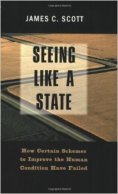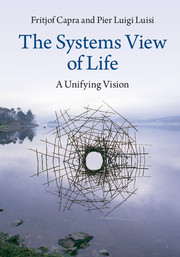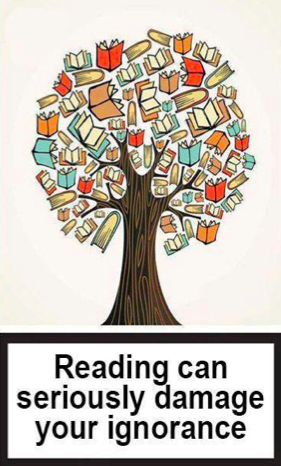
The aim of the Q&A series is to get an inside look into some of South Africa’s leading education academics, policy-makers and activists. This is the sixteenth interview in the series. Percy Moleke is Programme Manager and Coordinator of the Human Capabilities and Social Protection Working Group of the National Planning Commission.
1) In your career, why did you choose to focus on education and social policy and how did you get where you are now?
While studying economics, which has been my favourite subject since Matric many moons ago, the social part made much more sense to me. When I proceeded to university, the social electives were much more attractive, i.e. public sector economics, public finance, labour economics, economics of education were my favourite electives. It is their closeness to reality, and to my personal background that made sense; even econometric analysis related to these subjects made sense. I related to them in many ways and they gave a sense that what I was learning could make a difference. I am mostly attracted by the role of social policy in addressing inequality and particularly looking at the linkages between education and the labour market and understanding their role in addressing inequality. I believe they (education and labour market) are the root cause of inequality (engineered by apartheid) and should thus be key instruments in addressing inequality.
Education and hard work got me where I am. A bit of luck and a higher power helped definitely, but only if you work hard. Patience and being realistic are also part of the ingredients/characters.
2) What does your average week look like?
My weeks vary. Some are packed with meetings, which are a must when you are a public servant, and they demand a lot. Most of these require preparation, reading, preparing presentations, etc. Some weeks are a few meetings and one gets time to read a bit and reflect on issues, i.e. brainstorm with colleagues. This does not happen as often as I would like though. Some weeks are a mixture of all sorts of things, meetings, a bit of reading, a bit of trying to sort out some problem(s), a lot of time on the phone and email, and/or face to face with colleagues talking through some issue(s), writing some note/speech, a bit of whining, etc. these are long and happens more often that I would like. But all these are necessary and part of the job. I think this is why my job is interesting, sounds contradictory. I bemoan the lack of time to read and attend engagements such as seminars/workshops, etc., which makes weeks and days even longer. It means compromising evenings/nights and weekends as these are used for reading to catch up. Reading is a necessary part of the job, but time for it is not adequately factored in.
3) While I’m sure you’ve read many books and articles in your career, if you had to pick one or two that have been especially influential for you, which one or two would they be and why?
Hard to say as I read a variety of books and articles. My reading currently is influenced by the area of work I am busy with. So I am reading in education (ECD, schooling, vocational education, higher education), labour markets, social protection, as these are the areas I am working on. I was an influenced reader when I was younger. I would recall that some of the work that influenced my interests and a broader key message of interest in each are Becker’s work on Human Capital and equally Blaug’s work on education as a ‘screening device’, and Thurow’s work on labour market as a training market rather than an auction market. Then there is Hanushek’s work, I think it brings together a group of good analysts in the area of economics of education. It is like a ‘reference’ source. For a young student (then), with interest in education and labour markets, it was fascinating to read their work and the different views. But it also highlighted the important yet complex relationship between education and the labour market. My reading processes have changed since then. I distil critical messages from my readings; I don’t have any particular favourite. I would however prescribe Outliers to all students in particular. Hard work pays but it does not come easy and is not immediate, practice, practice and practice.
4) What do you think is the most under-researched area in South African education?
I think, most areas have been researched, but under-researched. Meaning it is the same narrative, almost similar analysis, hence same outcomes/messages from the research.
But I will go with the following:
First; is accountability in education. We all know that teachers are a critical component for improvement in education, we all point fingers at teachers (and Sadtu) for poor performance, we point to teachers’ poor content knowledge, etc. I have not seen an analysis that looks at why teachers (a large proportion of them) in our system are doing so badly. What is the impact of poor education administration on school performance? Econometric analysis that I have seen says, not much, but I argue that if one was to use a different methodology to assess this, you may find that it has a huge impact. Hence we cannot only point fingers at teachers when there is poor performance, if they do not get support from the districts, provinces, national, they can’t be blamed. Teachers in performing schools have mostly gone through the same training as those in under-performing schools, why does the issue of teachers’ mastery of content an issue in under-performing schools and not in other schools?
Similarly, why is Sadtu so powerful? I think it point to failure of management/administration. Lines are blurred. It is almost as if we have not defined the line between a teacher and an administrator/management in the system. In my view, once a person becomes a principal/district /provincial/national official they take on a different role in the system, their labour relations interests cannot be represented by Sadtu. And I think that happens because of the way our ‘education system’ has evolved. There is no accountability built in the system.
The second; is centralisation versus decentralisation of education. It is related to the first, but takes a slightly different angle. Here as well I think the lines are blurred. Hence accountability is an issue. Who do we hold accountable for what in education, and who is responsible for what part of the system. Given the vast geographical differences in our country, should we decentralise more (and to what level, i.e. Province or District or School) or is centralisation the best model, what part of the system should be centralised/decentralised. What are the lessons from the past 20 years or so?
The third is related to foundation learning. Starting from ECD (not Grade R, but prior to that). Here one of the areas that I think need thorough research relates to the language of instruction and the impact of learning or not learning in mother tongue at foundation phase for future performance. I don’t think this issue is well understood and properly contextualised. It seems many people are saying teach in mother tongue at foundation phase? I wonder if, despite what international evidence say, we understand what this means in the South African context and how correct and feasible this is.
5) What is the best advice you’ve been given?
To apply in my life – love what you are doing and give it your best shot, it makes doing it enjoyable and easy. And don’t be afraid to try new things, it is okay to fail as long as you learn lessons from failure and do better next time.
To apply at work- inconsistency in application/implementation can turn an excellent public policy into a bad policy.
6) As Programme Manager and Coordinator of the Human Capabilities and Social Protection Working Group of the NPC, I’m sure you have considerable first-hand experience of the real-world challenges that those in government face on a daily basis. Can you explain some of the under-appreciated challenges faced by the NPC?
I think people forget that it is only now that as a country we are appreciating the importance of having a long-term plan for the country, that this is a ‘new function’ in government. The NPC does not have answers and shares everyone’s concerns with respect to how the NDP will be implemented. We are all learning.
It is also under-appreciated that the NPC as a structure is not properly institutionalised. Sometimes there are huge expectations and while the NPC tries its best, it has not been worked out how it operates and relate to other functions of government. Every department has its ‘planning’ unit, but we know the challenges with how these are conceptualised and function. We need to work out how these interface with the NPC, National Treasury, StatsSA, etc. as all these form part of the planning function. It is exciting that the ANC, in its manifesto, put this issue of institutionalising planning on the agenda. It must happen. We need to improve our planning in government, and move from high level plans to planning implementation to the ‘t’. Planning is not an event with a defined single output –A plan, it is a continuous, iterative process.
There are also expectations that because there is now an NPC and NDP implementation will improve. NDP is still very high level, and most of the proposals need to be unpacked. I am not sure if the NPC is given enough space and time to unpack these proposals and engage with those who should implement. The advantage of the NPC is that you have people who are not drowned in the day to day running of line-function departments, hence should have space to read, think differently about the challenges of implementation and support line-function departments in every step of the implementation process. Department officials should be relying on the NPC to assist and support. It can be a neutral player as it has no interest except to support, improve coordination and bring in fresh thinking. Currently most of the challenges get picked up during monitoring of progress by the Department of Monitoring and Evaluation, and even then, it is still high level monitoring, the fault- lines are missed. Most of these fault-lines are in implementation plans and strategies, which, most of the time do not exist. This however, cannot happen with a structure that is under-capacitated. Commissioners are not full-time, it is difficult to get all Commissioners to a meeting for example, and there is a small secretariat.
7) If you weren’t in education what do you think you would be doing?
An environmentalist of sorts. I think I will be spending time doing something related to studying and protecting animals, I have a special liking of the big cats. National Geographic is my favourite TV channel.
8) Technology in education going forward – are you a fan or a sceptic?
A bit of both. I like face to face interaction. Maybe it’s because of my age! But I also think given our socio-economic challenges, it may perpetuate inequality (some would say it may be the game changer). We should not underestimate the poor access to basics of technology for most poor people in this country!
I recently read a book by Salman Khan –The One World School House. It made me think about the possibilities of technology in education, especially in instances where teachers’ content knowledge is lacking. It also scared me a bit, because I think it is not about ‘if’ but ‘when’ technology will be a key component in education. It makes me scared because I am not sure if we are ready for that.
I am also influenced by the increasing number of young people who are doing wonders with technology.
9) If you were given a R10 million research grant what would you use it for?
I interpret research broadly. I would use it to pilot different ways of improving quality teaching and learning in different contexts in SA. We all complain about poor quality of education, but I am not sure we know what we are complaining about and what to do about it. What works in what context and how to effect change. One of the fascinating areas to investigate is what is happening in the Quintile 2 schools that seem to be performing relatively well, what makes them work and why not in other schools. We need to move away from high level talk and analysis and understand what is happening at the school level, at the individual learner level. Our policies and intervention programmes must be informed by that.
Part of the problem I think is that we ‘overuse’ senior certificate results as a measure of how our system is doing. By the time learners are in Grade 12, it is a bit too late, because they are exiting the system. Meanwhile, every semester at least and yearly learners write exams in each Grade, we do not know how they are performing at the lower Grades, their progression, etc., and there is no mechanisms to use these results to understand performance at lower Grades and find ways to improve. We only wake up to the fact that about 40-50 per cent of a cohort that started Grade 1 is not writing senior secondary certificate, but are not sure at what point in the system do things begin to go bad and why, thus how can we intervene. We speculate that it at the end of the compulsory phase – Grade 9 or age 15, but the question is why a rational learner would drop out of the system when there are no positive prospects for them beyond that point.
R10 million is not a lot of money, but I would also invest a bit on education planning. I am referring to broad planning, understanding the implications of demographics, migration, social dynamics, town planning and developments, etc. on education provision and funding of education.
10) Having considerable experience in higher education in South Africa, you are well positioned to answer the following question: what do you think are the major challenges facing the higher education sector in South Africa in the next 10 years?
Inability to reproduce itself. I would spend all my money on ensuring that output in higher education increase both quantitatively and qualitatively, from undergraduate to post graduate. It is scary, and I am not sure if we are paying enough attention to this. I don’t use the term crisis often and loosely, but I think we are facing a crisis there. This is also because higher education has to produce skilled people for the economy as well. The pool is very small. Progress in development of this country is dependent on what we do in this area today I would argue. If we do not turn the wheel now, we should forget about taking this country to a higher and positive trajectory.
Related to the first challenge is the small size of the sector. We must look beyond the enrolment numbers in higher education and focus on participation rate, the distribution of these numbers by area of study and the throughput (graduates). While it is understandable that to grow the size, schooling has to improve and grow even faster, there is more that can be done to make the system more efficient. The failure and drop-out rates at these institutions are unacceptable.
The third challenge relates to clarity of identity and mission of our institutions, FET Colleges, and the newly proposed Community Colleges, Adult Education Centres and Comprehensive Universities and Universities of Technology. I am not sure if it is clear for young people in secondary school today what options they have when they leave school, which option is better suited for their career choices, pros-and cons of each, etc. For example, do they have to study up to matric to gain entry into an FET College, and is this applicable to all areas of study?
Universities are expected to be everything to everyone, because they have a relatively good reputation compared to Colleges. If we do not ensure that we clean up the image of colleges, ensure that they produce quality graduates who are employable, then we will continue to put pressure on universities, hence they have so many students doing Diplomas, which should be done in Colleges. It is pointless to have high numbers of young people in Colleges when the outcome of that is not of value for the individual, the economy and society.
The fourth I think is the link between higher education and the world of work. The two seem to be operating in isolation. There are pockets of cooperation and linkages, but for the most part there is a serious disconnect. You see this in teaching, research, innovation and employability issues.
//
Some of the other academics/policy-makers/activists on my “to-interview” list include Thabo Mabogoane, Veronica McKay, Volker Wedekind, John Kruger, Jonathan Jansen, and Khulekani Mathe. If you have any other suggestions drop me a mail and I’ll see what I can do.



 For a while now I’ve been meaning to ask a few people who I know if they’d like to do a guest blog post on something they’re interested in. While I was at Stanford earlier this year I met
For a while now I’ve been meaning to ask a few people who I know if they’d like to do a guest blog post on something they’re interested in. While I was at Stanford earlier this year I met 





















